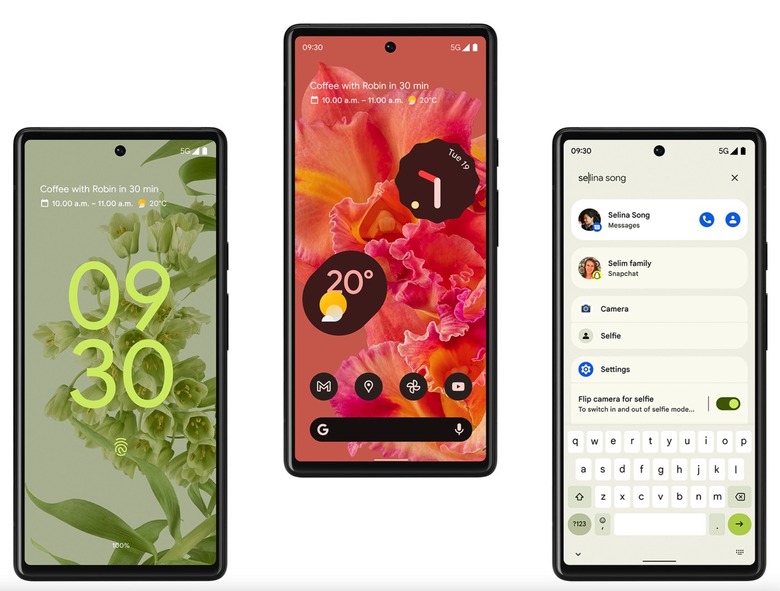Every iPhone And Android User Needs To Do This Once A Week
The smartphone landscape has changed drastically over the past few years. Consider this: not too long ago it was easy to make a case arguing that Apple's iPhone was the best smartphone on the market. These days, rival devices from Google and Samsung routinely give top-of-the-line iPhones a run for their money. Indeed, when it comes to certain metrics like camera performance, there are some years where Google and Samsung devices leave the iPhone stranded in second place. With that said, the narrative around smartphones today doesn't necessarily center on which device to get. Rather, it's about how to make the most out of whatever device you already own. And under that umbrella is the important issue of maintaining Android and iPhone security.
Especially these days, when scammers are more sophisticated and clever than ever, any concrete advice designed to keep your iPhone or Android device secure is worth paying attention to. To this point, the NSA not too long ago released a list of best practices for mobile devices. If you're keen on maintaining optimal security for your iPhone or Android, you'll want to read below.
iPhone and Android security tips
Many of the iPhone and Android security tips from the NSA are familiar. However, there are a few interesting entries on the list. For example, the NSA advises users to shut down and power on their devices every single week.
Touching on this, Citizen Lab security expert Bill Marczak explains that many hackers today are opting for "in-memory payloads that are harder to detect and trace back to whoever sent them." However, these types of hacks, Marczak notes, can't persist once a device is powered off.
Is powering your device on and off a foolproof strategy? Not at all. Still, it's one tool of many that users should keep in mind when it comes to iPhone security.
Other security tips from the NSA
It should go without saying, but never open unknown email attachments and links. This is especially worth paying attention to in an age where security firms like the NSO group have come up with incredibly ingenious exploits. As the NSA warns, "even legitimate senders can pass on malicious content accidentally or as a result of being compromised or impersonated by a malicious actor."
The NSA document also advises to only use original charging cords. This is especially good advice for iPhone users who might be tempted to buy a knockoff charger because Apple peripherals tend to be pricy. This is an especially important iPhone security tip.
iPhone and Android users alike should also make sure that they're always running current software. Apple and Google issue security updates periodically. In turn, users should make sure that their software is always up to date so that malicious actors can't take advantage of patched exploits.
Other security tips from the NSA include:
-
Use biometric authentication like Face ID to prevent unauthorized access to your device.
-
Disable location services for apps that don't need it.
-
Disable Bluetooth when you're not using it.
-
Don't connect to public Wi-Fi networks.
-
Use text applications with strong encryption.
-
Only use trusted accessories.
Use biometric authentication like Face ID to prevent unauthorized access to your device.
Disable location services for apps that don't need it.
Disable Bluetooth when you're not using it.
Don't connect to public Wi-Fi networks.
Use text applications with strong encryption.
Only use trusted accessories.
